Books on consciousness
A list of books relating to the hard problem of consciousness. Regularly updated cos I keep finding new stuff all the time.
A list of books relating to the hard problem of consciousness. Regularly updated cos I keep finding new stuff all the time.
2015
 Thomas Natsoulas
Thomas Natsoulas
The Conceptual Representation of Consciousness
(Cambridge 2015)
This book is a valuable contribution to the psychology of consciousness. Each of its six main chapters adopts the perspective of a different concept of consciousness employed in ordinary thought and speech. The author examines the sources of each concept and relates them to relatively recent or contemporary conceptual counterparts still perforce under development. See Cambridge | Amazon | Google
 T. Horgan, M. Sabatés & D. Sosa (eds.)
T. Horgan, M. Sabatés & D. Sosa (eds.)
Qualia and Mental Causation in a Physical World: Themes from the Philosophy of Jaegwon Kim
(Cambridge 2015)
This volume of new contributions revolves around the work of Jaegwon Kim. The essays cluster around two themes: first, exclusion, supervenience, and reduction, with attention to the causal exclusion argument for which Kim is widely celebrated; and second, phenomenal consciousness and qualia, with attention to the prospects for a functionalist account of the mental. See Cambridge | Amazon | Google
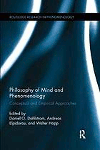 Dahlstrom, Elpidorou & Hopp (eds.)
Dahlstrom, Elpidorou & Hopp (eds.)
Philosophy of Mind and Phenomenology: Conceptual and Empirical Approaches
(Routledge 2015)
This volume shows how philosophy of mind and phenomenology interact in both conceptual and empirically-informed ways. It aims to show that phenomenology, as the first-personal study of the contents and structures of our mentality, can provide us with insights into the mind and can complement analytical or empirically-informed approaches to the study of the mind. See Routledge | Amazon | Google
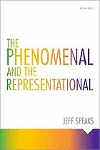 Jeff Speaks
Jeff Speaks
The Phenomenal and the Representational
(Oxford 2015)
Things with minds differ from things without minds by instantiating both phenomenal properties and representational properties. Speaks attempts to make progress on three questions: What are phenomenal properties? What are representational properties? How are the phenomenal and the representational related? See Oxford | Amazon | Google
 Miguens, Preyer & Morando (eds.)
Miguens, Preyer & Morando (eds.)
Pre-reflective Consciousness: Sartre and Contemporary Philosophy of Mind
(Routledge 2015)
This volume relates current analytical debates on consciousness to the debates that took place within continental philosophy in the twentieth century and in particular around the time of Sartre. A central concern is the return of subjectivity in the philosophy of mind and the idea that phenomenal consciousness cannot be reduced to functional or cognitive properties. See Routledge | Amazon | Google
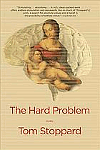 Tom Stoppard
Tom Stoppard
The Hard Problem: A Play
(Grove Atlantic 2015)
Hilary, a young psychology researcher at the Krohl Institute for Brain Science, is nursing a private sorrow and a troubling question. She and other researchers are grappling with what science calls the “hard problem”—if there is nothing but matter, what is consciousness? What she discovers puts her fundamentally at odds with her colleagues. See Grove Atlantic | Amazon | Google
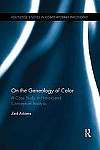 Zed Adams
Zed Adams
On the Genealogy of Color: A Case Study in Historicized Conceptual Analysis
(Routledge 2015)
Adams contends that two prominent positions in the debate about color realism, Cartesian anti-realism and Oxford realism, are both predicated on the assumption that the concept of color is ahistorical and unrevisable. He disputes this premise by offering a philosophical genealogy of the concept of color and arguing for a historicized approach to conceptual analysis. See Routledge | Amazon | Google
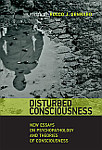 Rocco J. Gennaro (ed.)
Rocco J. Gennaro (ed.)
Disturbed Consciousness: New Essays on Psychopathology and Theories of Consciousness
(MIT 2015)
This volume examines various psychopathologies in the light of specific theories of consciousness. The contributors consider how a theory might account for a specific condition and also how the features of a psychopathology might challenge the theory. Each essay offers a distinct perspective from the intersection of philosophy, consciousness research and psychiatry. See MIT | Amazon | Google
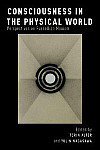 Torin Alter & Yujin Nagasawa (eds.)
Torin Alter & Yujin Nagasawa (eds.)
Consciousness in the Physical World: Perspectives on Russellian Monism
(Oxford 2015)
According to Russellian monism, matter has intrinsic properties that constitute consciousness and serve as categorical bases for the dispositional properties described in physics. This volume collects various works on Russellian monism: historical selections, recent classics and new pieces. Together, they constitute the first book-length treatment of the view. See Oxford | Amazon | Google
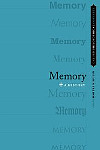 Dmitri Nikulin (ed.)
Dmitri Nikulin (ed.)
Memory: A History
(Oxford 2015)
Memory has become a dominant topic in fields ranging from philosophy and sociology to cultural studies and literary theory. The concept of memory is often used broadly however and not always consistently. This volume shows how it has been appropriated in different historical contexts and how it has changed throughout the history of philosophy. See Oxford | Amazon | Google
 Carlos Montemayor & H. H. Haladjian
Carlos Montemayor & H. H. Haladjian
Consciousness, Attention, and Conscious Attention
(MIT 2015)
Attention has often been compared to consciousness, because they appear to share similar qualities. But, Montemayor and Haladjian point out, attention is defined functionally whereas consciousness is often defined in terms of its phenomenal character without a clear functional purpose. Their conclusion is that consciousness and attention are largely dissociated. See MIT | Amazon | Google
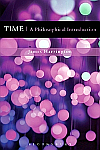 James Harrington
James Harrington
Time: A Philosophical Introduction
(Bloomsbury 2015)
Two problems define the philosophy of time. The ancient problem is the tension between being and becoming. Is being the fundamental truth of the universe or does the universe rather happen, continuously renewing itself? The modern problem is the lack of coherence between contemporary physics and our conception of a universe evolving in time. See Bloomsbury | Amazon | Google
 Jimena Canales
Jimena Canales
The Physicist and the Philosopher: Einstein, Bergson, and the Debate That Changed Our Understanding of Time
(Princeton 2015)
On April 6, 1922, in Paris, Albert Einstein and Henri Bergson publicly debated the nature of time. Einstein considered Bergson’s time to be soft, psychological, and unscientific. Bergson criticized Einstein’s time for being a metaphysics grafted onto science, one that ignored the intuitive aspects of time. Canales tells the remarkable story of this explosive debate and its consequences. See Princeton | Amazon | Google
 Ross P. Cameron
Ross P. Cameron
The Moving Spotlight: An Essay on Time and Ontology
(Oxford 2015)
Cameron argues that the flow of time is real and suggests that the best version of the A-theory is a version of the moving spotlight view, according to which past and future are real, but there is nonetheless an objectively privileged present. He also defends an account of the open future and argues that this account is better than that of the growing block theory. See Oxford | Amazon | Google
 Sy Montgomery
Sy Montgomery
The Soul of an Octopus: A Surprising Exploration into the Wonder of Consciousness
(Simon & Schuster 2015)
Having only recently accepted the intelligence of dogs, birds, and chimpanzees, scientists are now watching octopuses solve problems and are trying to decipher the meaning of its color-changing techniques. Montgomery chronicles the growing appreciation of this intelligent and fascinating mollusk as she tells a unique love story. See Simon & Schuster | Amazon | Google
 Nicholas Jolley
Nicholas Jolley
Locke’s Touchy Subjects: Materialism and Immortality
(Oxford 2015)
In seventeenth-century philosophy, the mind-body problem and the nature of personal immortality were two of the most controversial and sensitive issues. Nicholas Jolley seeks to show that these issues are more prominent in Locke’s philosophy than has previously been realized. He argues further that Locke takes up unorthodox positions in both cases. See Oxford | Amazon | Google
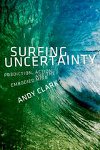 Andy Clark
Andy Clark
Surfing Uncertainty: Prediction, Action, and the Embodied Mind
(Oxford 2015)
In this ground-breaking work, Andy Clark turns a common view of the human mind upside down. In stark opposition to usual models of human cognition, he explores new theories in neuroscience, psychology, and artificial intelligence that reveal minds like ours to be prediction machines: devices that anticipate incoming streams of sensory stimulation before they arrive. See Oxford | Amazon | Google
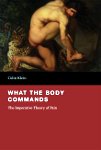 Colin Klein
Colin Klein
What the Body Commands: The Imperative Theory of Pain
(MIT 2015)
Klein proposes the novel theory that pains are imperative: they are sensations whose content is a command to protect the injured part of the body. Such “imperativism” about pain can account for two puzzling features of pain: its strong motivating power and its uninformative nature. On Klein’s view, pain does not represent facts about the world. See MIT | Amazon | Google
 Hubert Dreyfus & Charles Taylor
Hubert Dreyfus & Charles Taylor
Retrieving Realism
(Harvard 2015)
“A picture held us captive,” writes Wittgenstein in the Investigations, describing the powerful image of mind that underlies the modern epistemological tradition from Descartes onward. Dreyfus and Taylor offer a radical critique of this picture and restore a realist view affirming our direct access to the everyday world. See Harvard | Amazon | Google | Peter Godfrey-Smith review
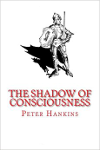 Peter Hankins
Peter Hankins
The Shadow of Consciousness: A Little Less Wrong
(CreateSpace 2015)
In the latter part of the twentieth century, scientists and philosophers embarked on a remarkable but unsuccessful venture into one of the last dark places on the intellectual map: the problem of consciousness. Peter Hankins, author of the Conscious Entities blog, has now written this intriguing account of what went wrong to shed light on the problem and suggest new ways forward. See Amazon | Google
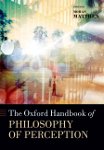 Mohan Matthen (ed.)
Mohan Matthen (ed.)
The Oxford Handbook of Philosophy of Perception
(Oxford 2015)
A 45-entry contemporary survey by leading philosophical thinkers in the philosophy of perception. Includes sections on the history of the subject, introductions to the epistemology, ontology and aesthetics of perception, treatments of the individual sense modalities, and a consideration of how perceptual information is integrated and consolidated. See Oxford | Amazon | Google
 M. Joshua Mozersky
M. Joshua Mozersky
Time, Language, and Ontology: The World from the B-Theoretic Perspective
(Oxford 2015)
Mozersky shows how we can reconcile the human experience of time, which is centred on the present, with the objective conception of time, on which all moments are intrinsically alike. He defends a temporally centreless ontology along with a tenseless semantics that is compatible with—indeed helps to explain the need for—tensed language and thought. See Oxford | Amazon | Google
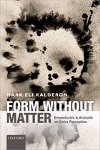 Mark Eli Kalderon
Mark Eli Kalderon
Form without Matter: Empedocles and Aristotle on Color Perception
(Oxford 2015)
Empedocles conceives of perception as material assimilation, but this raises a puzzle about color vision, which presents colors that inhere in distant objects. Aristotle resolves this by defining perception as the assimilation of sensible form without matter. Kalderon shows how, in the light of Empedocles’s puzzle, Aristotle’s perplexing definition can be better understood. See Oxford | Amazon | Google
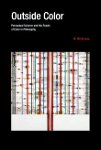 M. Chirimuuta
M. Chirimuuta
Outside Color: Perceptual Science and the Puzzle of Color in Philosophy
(MIT 2015)
Chirimuuta draws on perceptual science to address the metaphysical debate over color that has raged since at least the seventeenth century. On her account, perceptual states are action-guiding interactions between a perceiver and the environment. Colors are perceiver-dependent properties and yet our awareness of them does not mislead us about the world. See MIT | Amazon | Google
 Uriah Kriegel
Uriah Kriegel
The Varieties of Consciousness
(Oxford 2015)
Is there a sui generis, irreducible cognitive phenomenology—a phenomenology proper to thought? Is there one of agency? How many types of these must we posit just to be able to describe the stream of consciousness? Kriegel develops a unified framework for addressing these questions and applies it to six controversial types of phenomenal experience. See Oxford | Amazon | Google
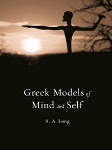 A. A. Long
A. A. Long
Greek Models of Mind and Self
(Harvard 2015)
A wide-ranging study of Greek notions of mind and human selfhood from Homer through Plotinus. What happens when we die? How is the mind or soul related to the body? Are we responsible for our own happiness? Can we achieve autonomy? Long demonstrates how the study of ancient Greek thought can enlarge and enrich our experience. See Harvard | Amazon | Google
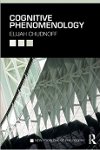 Elijah Chudnoff
Elijah Chudnoff
Cognitive Phenomenology
(Routledge 2015)
Conscious states associated with vision, touch, emotions, and moods, have a distinctive first-person ‘feel’ to them and are often taken to be radically different from mental states associated with thought. Chudnoff questions this orthodoxy and explores the prospects of applying phenomenology to the study of thought and cognition. See Routledge | Amazon | Google
 John Searle
John Searle
Seeing Things as They Are: A Theory of Perception
(Oxford 2015)
This book provides a comprehensive account of the intentionality of perception. Searle identifies a single fallacy—the Bad Argument—as the root of nearly all of the confusion in the subject. He then justifies the claim that perceptual experiences have presentational intentionality and shows how this yields the direct realism of his account. See Oxford | Amazon | Google | Josh Armstrong review
 Paul Coates & Sam Coleman (eds.)
Paul Coates & Sam Coleman (eds.)
Phenomenal Qualities: Sense, Perception & Consciousness
(Oxford 2015)
What are phenomenal qualities, the qualities of conscious experiences? Their problematic nature is what makes it hard to understand how the mind is related to the physical world. Fourteen original papers written by a team of distinguished philosophers and psychologists explore the ways in which phenomenal qualities fit in with our understanding of mind and reality. See Oxford | Amazon
 Michael Pelczar
Michael Pelczar
Sensorama: A Phenomenalist Analysis of Spacetime and Its Contents
(Oxford 2015)
On the modern scientific conception of time, it makes no sense to speak of the duration of a pain, or the simultaneity of sensations in different parts of the brain. Poincaré concluded that consciousness does not exist in spacetime but serves as the material out of which we must create the physical world. Pelczar’s central claim is that Poincaré was substantially correct. See Oxford | Amazon | Google
 Bradford Skow
Bradford Skow
Objective Becoming
(Oxford 2015)
An original defense of the block universe theory of time, on which—in a certain sense—time does not pass. Skow also provides substantial discussions of rival theories, including those which feature a robust passage of time or objective becoming: presentism, the moving spotlight theory, the growing block theory and the branching time theory. See Oxford | Amazon | Google

The Conceptual Representation of Consciousness
(Cambridge 2015)
This book is a valuable contribution to the psychology of consciousness. Each of its six main chapters adopts the perspective of a different concept of consciousness employed in ordinary thought and speech. The author examines the sources of each concept and relates them to relatively recent or contemporary conceptual counterparts still perforce under development. See Cambridge | Amazon | Google

Qualia and Mental Causation in a Physical World: Themes from the Philosophy of Jaegwon Kim
(Cambridge 2015)
This volume of new contributions revolves around the work of Jaegwon Kim. The essays cluster around two themes: first, exclusion, supervenience, and reduction, with attention to the causal exclusion argument for which Kim is widely celebrated; and second, phenomenal consciousness and qualia, with attention to the prospects for a functionalist account of the mental. See Cambridge | Amazon | Google

Philosophy of Mind and Phenomenology: Conceptual and Empirical Approaches
(Routledge 2015)
This volume shows how philosophy of mind and phenomenology interact in both conceptual and empirically-informed ways. It aims to show that phenomenology, as the first-personal study of the contents and structures of our mentality, can provide us with insights into the mind and can complement analytical or empirically-informed approaches to the study of the mind. See Routledge | Amazon | Google

The Phenomenal and the Representational
(Oxford 2015)
Things with minds differ from things without minds by instantiating both phenomenal properties and representational properties. Speaks attempts to make progress on three questions: What are phenomenal properties? What are representational properties? How are the phenomenal and the representational related? See Oxford | Amazon | Google

Pre-reflective Consciousness: Sartre and Contemporary Philosophy of Mind
(Routledge 2015)
This volume relates current analytical debates on consciousness to the debates that took place within continental philosophy in the twentieth century and in particular around the time of Sartre. A central concern is the return of subjectivity in the philosophy of mind and the idea that phenomenal consciousness cannot be reduced to functional or cognitive properties. See Routledge | Amazon | Google

The Hard Problem: A Play
(Grove Atlantic 2015)
Hilary, a young psychology researcher at the Krohl Institute for Brain Science, is nursing a private sorrow and a troubling question. She and other researchers are grappling with what science calls the “hard problem”—if there is nothing but matter, what is consciousness? What she discovers puts her fundamentally at odds with her colleagues. See Grove Atlantic | Amazon | Google

On the Genealogy of Color: A Case Study in Historicized Conceptual Analysis
(Routledge 2015)
Adams contends that two prominent positions in the debate about color realism, Cartesian anti-realism and Oxford realism, are both predicated on the assumption that the concept of color is ahistorical and unrevisable. He disputes this premise by offering a philosophical genealogy of the concept of color and arguing for a historicized approach to conceptual analysis. See Routledge | Amazon | Google

Disturbed Consciousness: New Essays on Psychopathology and Theories of Consciousness
(MIT 2015)
This volume examines various psychopathologies in the light of specific theories of consciousness. The contributors consider how a theory might account for a specific condition and also how the features of a psychopathology might challenge the theory. Each essay offers a distinct perspective from the intersection of philosophy, consciousness research and psychiatry. See MIT | Amazon | Google

Consciousness in the Physical World: Perspectives on Russellian Monism
(Oxford 2015)
According to Russellian monism, matter has intrinsic properties that constitute consciousness and serve as categorical bases for the dispositional properties described in physics. This volume collects various works on Russellian monism: historical selections, recent classics and new pieces. Together, they constitute the first book-length treatment of the view. See Oxford | Amazon | Google

Memory: A History
(Oxford 2015)

Memory has become a dominant topic in fields ranging from philosophy and sociology to cultural studies and literary theory. The concept of memory is often used broadly however and not always consistently. This volume shows how it has been appropriated in different historical contexts and how it has changed throughout the history of philosophy. See Oxford | Amazon | Google

Consciousness, Attention, and Conscious Attention
(MIT 2015)
Attention has often been compared to consciousness, because they appear to share similar qualities. But, Montemayor and Haladjian point out, attention is defined functionally whereas consciousness is often defined in terms of its phenomenal character without a clear functional purpose. Their conclusion is that consciousness and attention are largely dissociated. See MIT | Amazon | Google

Time: A Philosophical Introduction
(Bloomsbury 2015)
Two problems define the philosophy of time. The ancient problem is the tension between being and becoming. Is being the fundamental truth of the universe or does the universe rather happen, continuously renewing itself? The modern problem is the lack of coherence between contemporary physics and our conception of a universe evolving in time. See Bloomsbury | Amazon | Google

The Physicist and the Philosopher: Einstein, Bergson, and the Debate That Changed Our Understanding of Time
(Princeton 2015)
On April 6, 1922, in Paris, Albert Einstein and Henri Bergson publicly debated the nature of time. Einstein considered Bergson’s time to be soft, psychological, and unscientific. Bergson criticized Einstein’s time for being a metaphysics grafted onto science, one that ignored the intuitive aspects of time. Canales tells the remarkable story of this explosive debate and its consequences. See Princeton | Amazon | Google

The Moving Spotlight: An Essay on Time and Ontology
(Oxford 2015)
Cameron argues that the flow of time is real and suggests that the best version of the A-theory is a version of the moving spotlight view, according to which past and future are real, but there is nonetheless an objectively privileged present. He also defends an account of the open future and argues that this account is better than that of the growing block theory. See Oxford | Amazon | Google

The Soul of an Octopus: A Surprising Exploration into the Wonder of Consciousness
(Simon & Schuster 2015)
Having only recently accepted the intelligence of dogs, birds, and chimpanzees, scientists are now watching octopuses solve problems and are trying to decipher the meaning of its color-changing techniques. Montgomery chronicles the growing appreciation of this intelligent and fascinating mollusk as she tells a unique love story. See Simon & Schuster | Amazon | Google

Locke’s Touchy Subjects: Materialism and Immortality
(Oxford 2015)
In seventeenth-century philosophy, the mind-body problem and the nature of personal immortality were two of the most controversial and sensitive issues. Nicholas Jolley seeks to show that these issues are more prominent in Locke’s philosophy than has previously been realized. He argues further that Locke takes up unorthodox positions in both cases. See Oxford | Amazon | Google

Surfing Uncertainty: Prediction, Action, and the Embodied Mind
(Oxford 2015)
In this ground-breaking work, Andy Clark turns a common view of the human mind upside down. In stark opposition to usual models of human cognition, he explores new theories in neuroscience, psychology, and artificial intelligence that reveal minds like ours to be prediction machines: devices that anticipate incoming streams of sensory stimulation before they arrive. See Oxford | Amazon | Google

What the Body Commands: The Imperative Theory of Pain
(MIT 2015)
Klein proposes the novel theory that pains are imperative: they are sensations whose content is a command to protect the injured part of the body. Such “imperativism” about pain can account for two puzzling features of pain: its strong motivating power and its uninformative nature. On Klein’s view, pain does not represent facts about the world. See MIT | Amazon | Google

Retrieving Realism
(Harvard 2015)
“A picture held us captive,” writes Wittgenstein in the Investigations, describing the powerful image of mind that underlies the modern epistemological tradition from Descartes onward. Dreyfus and Taylor offer a radical critique of this picture and restore a realist view affirming our direct access to the everyday world. See Harvard | Amazon | Google | Peter Godfrey-Smith review

The Shadow of Consciousness: A Little Less Wrong
(CreateSpace 2015)
In the latter part of the twentieth century, scientists and philosophers embarked on a remarkable but unsuccessful venture into one of the last dark places on the intellectual map: the problem of consciousness. Peter Hankins, author of the Conscious Entities blog, has now written this intriguing account of what went wrong to shed light on the problem and suggest new ways forward. See Amazon | Google

The Oxford Handbook of Philosophy of Perception
(Oxford 2015)

A 45-entry contemporary survey by leading philosophical thinkers in the philosophy of perception. Includes sections on the history of the subject, introductions to the epistemology, ontology and aesthetics of perception, treatments of the individual sense modalities, and a consideration of how perceptual information is integrated and consolidated. See Oxford | Amazon | Google

Time, Language, and Ontology: The World from the B-Theoretic Perspective
(Oxford 2015)
Mozersky shows how we can reconcile the human experience of time, which is centred on the present, with the objective conception of time, on which all moments are intrinsically alike. He defends a temporally centreless ontology along with a tenseless semantics that is compatible with—indeed helps to explain the need for—tensed language and thought. See Oxford | Amazon | Google

Form without Matter: Empedocles and Aristotle on Color Perception
(Oxford 2015)
Empedocles conceives of perception as material assimilation, but this raises a puzzle about color vision, which presents colors that inhere in distant objects. Aristotle resolves this by defining perception as the assimilation of sensible form without matter. Kalderon shows how, in the light of Empedocles’s puzzle, Aristotle’s perplexing definition can be better understood. See Oxford | Amazon | Google

Outside Color: Perceptual Science and the Puzzle of Color in Philosophy
(MIT 2015)
Chirimuuta draws on perceptual science to address the metaphysical debate over color that has raged since at least the seventeenth century. On her account, perceptual states are action-guiding interactions between a perceiver and the environment. Colors are perceiver-dependent properties and yet our awareness of them does not mislead us about the world. See MIT | Amazon | Google

The Varieties of Consciousness
(Oxford 2015)
Is there a sui generis, irreducible cognitive phenomenology—a phenomenology proper to thought? Is there one of agency? How many types of these must we posit just to be able to describe the stream of consciousness? Kriegel develops a unified framework for addressing these questions and applies it to six controversial types of phenomenal experience. See Oxford | Amazon | Google

Greek Models of Mind and Self
(Harvard 2015)
A wide-ranging study of Greek notions of mind and human selfhood from Homer through Plotinus. What happens when we die? How is the mind or soul related to the body? Are we responsible for our own happiness? Can we achieve autonomy? Long demonstrates how the study of ancient Greek thought can enlarge and enrich our experience. See Harvard | Amazon | Google

Cognitive Phenomenology
(Routledge 2015)
Conscious states associated with vision, touch, emotions, and moods, have a distinctive first-person ‘feel’ to them and are often taken to be radically different from mental states associated with thought. Chudnoff questions this orthodoxy and explores the prospects of applying phenomenology to the study of thought and cognition. See Routledge | Amazon | Google

Seeing Things as They Are: A Theory of Perception
(Oxford 2015)
This book provides a comprehensive account of the intentionality of perception. Searle identifies a single fallacy—the Bad Argument—as the root of nearly all of the confusion in the subject. He then justifies the claim that perceptual experiences have presentational intentionality and shows how this yields the direct realism of his account. See Oxford | Amazon | Google | Josh Armstrong review

Phenomenal Qualities: Sense, Perception & Consciousness
(Oxford 2015)
What are phenomenal qualities, the qualities of conscious experiences? Their problematic nature is what makes it hard to understand how the mind is related to the physical world. Fourteen original papers written by a team of distinguished philosophers and psychologists explore the ways in which phenomenal qualities fit in with our understanding of mind and reality. See Oxford | Amazon

Sensorama: A Phenomenalist Analysis of Spacetime and Its Contents
(Oxford 2015)
On the modern scientific conception of time, it makes no sense to speak of the duration of a pain, or the simultaneity of sensations in different parts of the brain. Poincaré concluded that consciousness does not exist in spacetime but serves as the material out of which we must create the physical world. Pelczar’s central claim is that Poincaré was substantially correct. See Oxford | Amazon | Google

Objective Becoming
(Oxford 2015)
An original defense of the block universe theory of time, on which—in a certain sense—time does not pass. Skow also provides substantial discussions of rival theories, including those which feature a robust passage of time or objective becoming: presentism, the moving spotlight theory, the growing block theory and the branching time theory. See Oxford | Amazon | Google
Menu
 What’s a logical paradox?
What’s a logical paradox? Achilles & the tortoise
Achilles & the tortoise The surprise exam
The surprise exam Newcomb’s problem
Newcomb’s problem Newcomb’s problem (sassy version)
Newcomb’s problem (sassy version) Seeing and being
Seeing and being Logic test!
Logic test! Philosophers say the strangest things
Philosophers say the strangest things Favourite puzzles
Favourite puzzles Books on consciousness
Books on consciousness Philosophy videos
Philosophy videos Phinteresting
Phinteresting Philosopher biographies
Philosopher biographies Philosopher birthdays
Philosopher birthdays Draft
Draftbarang 2009-2024  wayback machine
wayback machine
 wayback machine
wayback machine